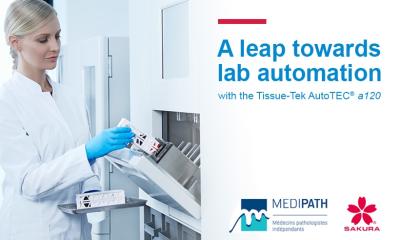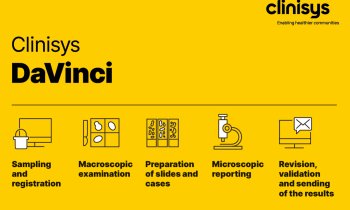Article • Economies of scale
Lab medicine: Network consolidation continues
Laboratory networks are consolidating across the globe as they seek to deliver a more efficient and cost effective service.
Report: Mark Nicholls

The latest developments on several continents were outlined at the FiLM 2018 – Frontiers in Laboratory Medicine congress held in Birmingham, UK in January. With consolidation viewed as a way to deliver economies of scale, it was a recurring theme at the congress with topics covering the pros and cons of consolidating pathology services, and exploring whether one size fits all when it comes to models of laboratory consolidation.
The Dark Report editor-in-chief, Robert Michel, drew on examples of Sonic Healthcare Ltd from Sydney, Australia, as a leader in consolidation and LabCorp and Quest Diagnostics in the USA as major global players, although he pointed to other examples in Japan, with one major laboratory processing 100,000 patient specimens every night. In a round up that focused less on Europe and Asia, and more on North America, Australia and New Zealand, he offered an insight into what was happening in terms of laboratory consolidation within the sector in these regions.
Approaches differ internationally
There is currently tension between private pathology companies and the public health care system and, after almost 30 years, most provinces do not have much left to “squeeze out” of pathology testing via consolidation
Robert L. Michel
From a situation in 2000, when New Zealand had multiple private lab providers, the country now has ‘sole source’ tenders to reduce competition, concentrate testing and lower the cost of pathology whilst, in Australia, hospital clusters have set up regional pathology networks. ‘Canada has been consolidating both hospital and laboratory services since the late 1990s,’ he pointed out, ‘though that concentration is generally happening within the boundaries of each province. ‘There is currently tension between private pathology companies and the public health care system and, after almost 30 years, most provinces do not have much left to “squeeze out” of pathology testing via consolidation.’
In the USA there are private independent lab companies and speciality testing companies, but hospitals are forming ever-larger integrated health systems with the hospital in-patient labs being the first clinical service to be consolidated. ‘Hospitals are consolidating, rationalising and standardising their lab testing services for in- and out-patient testing,’ Michel added. However, he also predicted that the purchase of a health insurance company by a major pharmacy brand would lead to pathology tests being offered within pharmacies as consumers sought greater convenience.
Options to adopt consolidation

Earlier, Ralph Dadoun, Senior Advisor with the Optilab Project in Montreal, detailed the latest progress on the Optilab project, which is part of a provincial re-organisation of laboratory services intended to save tens of millions of dollars a year and requiring the transportation of about 70% of all test samples to centralised hubs over large geographical distances in Quebec.
Meanwhile, Chris Fourie, Director of laboratory performance consultancy LTS Health, in the UK, discussed the model for consolidated pathology services in England. Fourie has worked alongside NHS Improvement to develop operational metrics to centrally assess pathology data across England with the data being used byTrusts to benchmark their laboratories. Delegates heard there were five main options for adopting consolidation in England: better networking and stronger collaboration between trusts; consultants interaction being critical to achieve success; a more modern IT infrastructure to act as a catalyst to improvement; con-venience becoming a key value added factor; and innovative funding models.
Profile:
Robert L Michel is Editor-in-Chief of The Dark Report, a business intelligence service for pathologists and laboratory executives. A respected commentator, consultant, author, editor, speaker and entrepreneur, he is a leading expert on the management of clinical laboratories and anatomic pathology group practices. He received his BA in Economics from the University of California, Los Angeles, USA, and currently lives/works in Austin, Texas, USA.
05.03.2018











